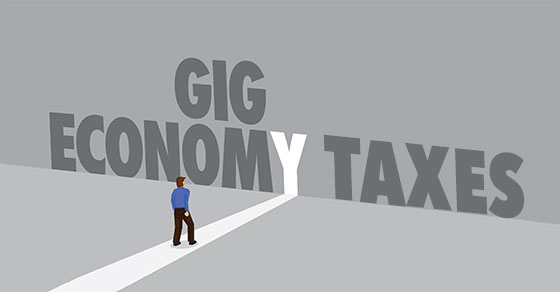Reduce the impact of the 3.8% net investment income tax
- ByPolk & Associates
- Jun, 12, 2023
- All News & Information
- Comments Off on Reduce the impact of the 3.8% net investment income tax
In addition to regular income tax, high-income taxpayers may face the 3.8% net investment income tax. This article explains who the tax applies to, as well as some strategies to minimize it.
Traveling for business this summer? Here’s what you can deduct
- ByPolk & Associates
- Jun, 12, 2023
- All News & Information
- Comments Off on Traveling for business this summer? Here’s what you can deduct
If you and your employees are traveling for business this summer, there are a number of considerations. Under tax law, in order to claim deductions, you must meet certain requirements for out-of-town business travel within the U.S. The rules apply if the business reasonably requires an overnight stay. The actual costs of travel (plane fare, cabs, etc.) are deductible for out-of-town business trips. You’re also allowed to deduct the cost of lodging. For 2023, the law allows a 50% deduction for business meals. If a trip is a combined business/pleasure trip, only the costs of meals, lodging, etc., incurred for the business days are deductible (not those incurred for personal vacation days).
Avoid succession drama with a buy-sell agreement
- ByPolk & Associates
- Jun, 12, 2023
- All News & Information
- Comments Off on Avoid succession drama with a buy-sell agreement
There are many aspects to succession planning. One way to put some clear steps in writing, particularly if your company has multiple owners, is to draft a buy-sell agreement. This is essentially a contract that lays out the terms and conditions under which the owners of a business, or the business itself, can buy out an owner’s interest if that person dies, becomes disabled or decides to leave. By enabling the orderly transition of a departing owner’s interest, a buy-sell helps ensure a smooth ownership transfer while reassuring other stakeholders such as family members and employees. Creating and administering such an agreement calls for expert assistance. Contact us for help.
Keep these DOs and DON’Ts in mind when deducting business meal and vehicle expenses
- ByPolk & Associates
- May, 30, 2023
- All News & Information
- Comments Off on Keep these DOs and DON’Ts in mind when deducting business meal and vehicle expenses
Business vehicle and meal expenses are a magnet for IRS attention. If you claim deductions for them, it’s important to comply with the strict tax law substantiation requirements. Keep these DOs and DON’Ts in mind: DO keep detailed, accurate records. For each expense, record the amount, time, place, business purpose, and business relationship of anyone to whom you provided a meal. If you have employees who you reimburse for meals and auto expenses, DO make sure they’re complying with all the rules. DON’T reconstruct expense logs at year end or wait until you receive an IRS notice. Take a moment to record the details in a log or diary or on a receipt at the time of the event or soon after.
Benefits of a living trust for your estate
- ByPolk & Associates
- May, 30, 2023
- All News & Information
- Comments Off on Benefits of a living trust for your estate
If you have significant assets, you should consider establishing a living trust to avoid probate. Probate is the legal process intended to make sure a deceased person’s assets are properly distributed. However, going through probate typically means red tape, legal fees and your financial affairs becoming public information. You can avoid this with a living trust. For federal income tax purposes, a living trust’s existence is ignored while you’re alive. As far as the IRS is concerned, you still personally own the assets that are in the trust. So, you continue to report on your tax return any income generated by trust assets and any deductions related to those assets. Contact us to learn more.
Is it time for a targeted marketing campaign?
- ByPolk & Associates
- May, 30, 2023
- All News & Information
- Comments Off on Is it time for a targeted marketing campaign?
As the saying goes, “life comes at you fast.” Businesses can avoid getting caught off guard by shifting customer desires, preferences and demographics by regularly conducting targeted marketing campaigns. This is an analytical approach to studying your company’s market, breaking it up into segments and focusing on the most potentially profitable ones. It all starts with gathering demographic data, such as age bracket, economic status and location of customers. Then, review purchasing patterns of different demographic groups in your customer base and evaluate trends in the broader market. Consider “cluster analysis” to group similar people into more specific groups. Contact us for assistance.
Being a gig worker comes with tax consequences
- ByPolk & Associates
- May, 30, 2023
- All News & Information
- Comments Off on Being a gig worker comes with tax consequences
In recent years, many workers have become engaged in the “gig” economy. They may deliver takeout restaurant meals, walk dogs, drive for ride-hailing companies or even perform services such as nursing. There are tax consequences when performing these jobs. Generally, if you receive income from gigs or freelancing, it’s taxable. That’s true even if the income comes from a side job and if you don’t receive a 1099-NEC or other form reporting the money you made. You may need to make quarterly estimated tax payments because your income isn’t subject to withholding. Some or all of your business expenses may be deductible on your tax return, subject to the normal tax rules. Contact us to learn more.
The IRS has just announced 2024 amounts for Health Savings Accounts
- ByPolk & Associates
- May, 30, 2023
- All News & Information
- Comments Off on The IRS has just announced 2024 amounts for Health Savings Accounts
The IRS has released next year’s inflation-adjusted amounts for Health Savings Accounts. For 2024, the annual contribution limit for an individual with self-only coverage under a high-deductible health plan (HDHP) will be $4,150. For an individual with family coverage, it will be $8,300. This is up from $3,850 and $7,750, respectively, for 2023. For calendar year 2024, an HDHP will be a health plan with an annual deductible that isn’t less than $1,600 for self-only coverage or $3,200 for family coverage. And annual out-of-pocket expenses (deductibles, co-payments, and other amounts, but not premiums) won’t be able to exceed $8,050 for self-only coverage or $16,100 for family coverage.
How to battle back against brandjacking
- ByPolk & Associates
- May, 18, 2023
- All News & Information
- Comments Off on How to battle back against brandjacking
“Brandjacking” is when criminals copy a business’s digital assets and use them to perpetrate fraud against customers, suppliers, employees or others. Such assets can include a company’s logo, website, social media accounts and email domain. Here are some ways to battle back: 1) Register your trademark with the appropriate agencies. 2) Buy similar domain names to prevent fraudsters from using them to trick users. 3) Invest in comprehensive cybersecurity measures. 4) Monitor online chatter about your business. 5) Enforce your legal rights if you’re brandjacked. 6) Communicate clearly with customers and other stakeholders about what’s going on. 7) Be prepared to rebrand, if necessary.
Questions you may still have after filing your tax return
- ByPolk & Associates
- May, 18, 2023
- All News & Information
- Comments Off on Questions you may still have after filing your tax return
If you’ve filed your 2022 tax return with the IRS, you may think you’re done with taxes for another year. But some questions may still crop up. 1) When will your refund arrive? Go to irs.gov and click on “Get Your Refund Status” to find out. 2) How long should you save tax records? In general, save them for three years after filing although you should keep the actual returns indefinitely. However, there are exceptions to this rule. 3) If you overlooked claiming something on your return, can you still claim a refund for it? You can generally file an amended return to claim a refund within three years after the date you filed the original return or two years from the date you paid the tax.










